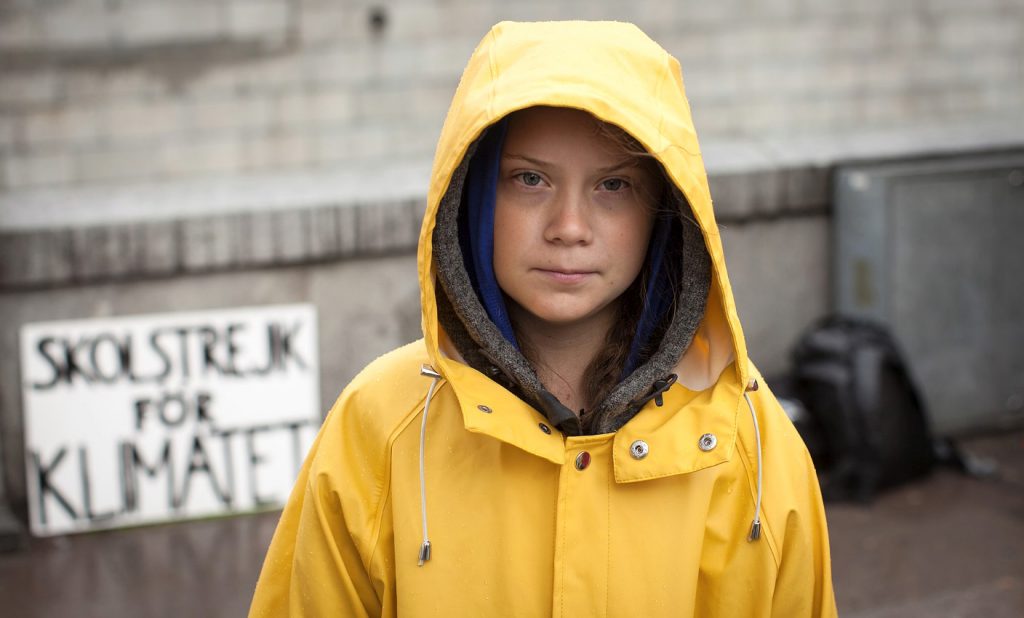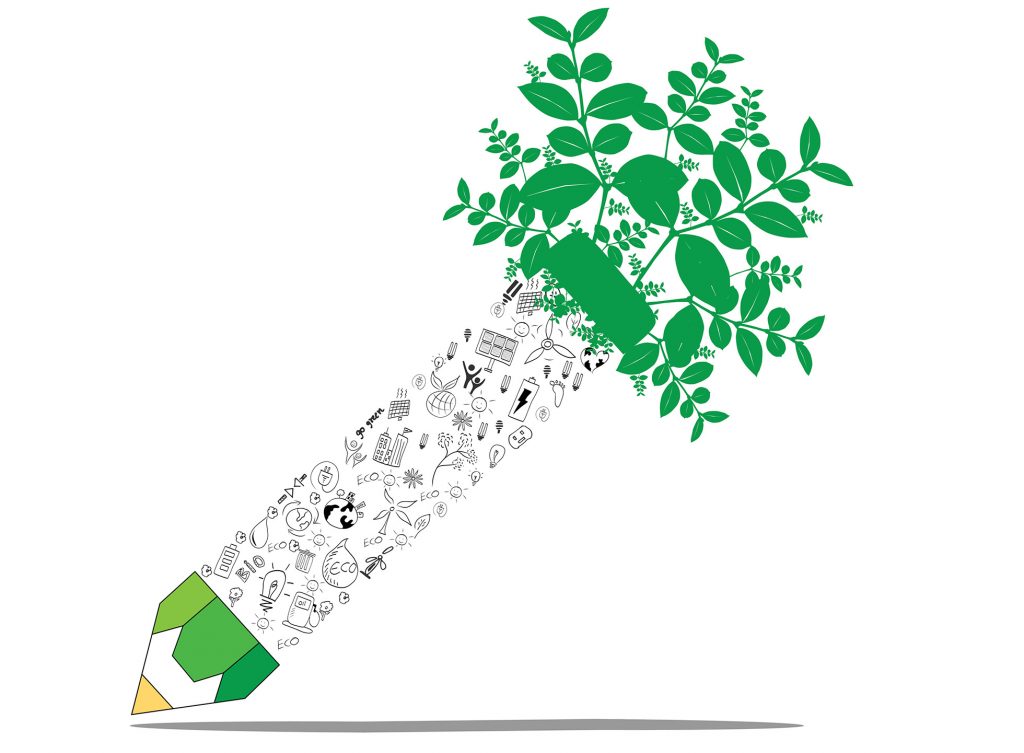
Mentor education matters
April 22, 2019
Promoting Active Civic Education and Democracy in Teacher-training: A model from an ERASMUS+ project
May 5, 2019Reorienting Teacher Educators Towards Sustainability

On the 24th January 2019 a young sixteen year old schoolgirl from Sweden, Greta Thunberg, addressed attendees at the World Economic Forum in Davos. She said to them “Some people say that the climate crisis is something that we will have created, but that is not true, because if everyone is guilty then no-one is to blame. And someone is to blame. Some people, … have known exactly what priceless values they have been sacrificing to continue making unimaginable amounts of money. And I think many of you here today belong to that group of people.” (Khan, 2019)

Greta Thunberg, who has since been nominated for the Nobel Peace Prize, came to prominence in August 2018 after holding a solo school strike outside the Swedish parliament for three weeks and lobbying Swedish MPs to comply with the Paris Agreement. This action has inspired further “strikes” by up to 20,000 school students in 270 cities around the world (Carrington, 2018), although these events do not usually make it to mainstream news reports. However, what lessons should we as teachers and teacher educators take from the actions of these young people? Are we to consider this as just the actions of a few rebellious young people who are using this as an excuse to get out of school, or is this the voice of a generation whose futures, whose very lives are at stake and they need to be listened to. Let us be absolutely clear, there is a climate crisis, sometimes referred to as climate genocide (Wallace-Wells, 2018), in which, if no action is taken to curb the emissions of the so-called greenhouse gases, the world has approximately eleven years before severe consequences will be seen (Watts, 2018), causing rising sea levels and even greater extreme weather events, resulting in death and displacement of millions of people, usually people in poorer countries, but also for poorer communities in the developed world and for all communities along coastal regions of every country on the planet. Do we, as teachers and teacher educators, have some responsibility to address this? Of course we do!
 Nearly twenty years ago the United Nations launched an initiative to re-orient teacher education to address sustainability. The intervening years have probably resulted in even more urgency for this to happen with accelerating climate change, drastic losses in biodiversity, increased plastic pollution, decline in bees possibly linked to insecticide use and so on.
Nearly twenty years ago the United Nations launched an initiative to re-orient teacher education to address sustainability. The intervening years have probably resulted in even more urgency for this to happen with accelerating climate change, drastic losses in biodiversity, increased plastic pollution, decline in bees possibly linked to insecticide use and so on.
It is widely accepted that education is the key to sustainable development (Bokova, 2015) but with a world that has around 59 million teachers, with a turnover of 5-10% each year (Scott & Gough, 2002), retraining this number of teachers to address education for sustainable development is an immense task. This is why UNESCO identified teacher education institutions within higher education as key change agents in re-orienting teacher education (Scott & Gough, 2002). However, such a re-orientation requires some thought to be given to the capability of teacher educators to embed sustainability within all aspects of the professional learning of teachers. As Leal Filho et al., (2018) said, the transformation in learning needed in higher education for education for sustainability requires the commitment of faculty and academics. Of course transitioning to a sustainable future cannot be secured in a matter of months but, “with a well-designed set of commitments and targets, we can move onto the right path” (Bokova, 2015), and with the right educational programmes we can stay on that path.

As someone who has been committed to environment and sustainability education for over forty years, it is easy to become cynical and disillusioned with the lack of progress. What we see is an education system that is designed more to prop up the very economic system that Greta Thunberg is critical of, rather than an education system which raises awareness and changes behaviours to align more with an ecologic model rather than an outdated economic one. Now, more than ever, we need teacher education institutions and teacher educators to embrace the UN’s initiative to re-orient teacher education towards sustainability. As Bentham, Sinnes, & Gjøtterud (2015) suggest education for sustainable development “needs to become the culture of more and more Higher Education Institutions and more specifically, teacher education institutions” (p176). An urgent question that all teacher educators need to consider is how can we influence social change and visions for teacher education to have sustainability at the forefront of our thinking? How can initiatives such as InFo-TED help with the re-orientation required to ensure that considerations of sustainability are more than tokenistic gestures?
References
Bentham, H., Sinnes, A., & Gjøtterud, S. (2015). A Teacher Education for Sustainable Development System: An Institutional Responsibility. International Journal of Higher Education, 4(4), 158–177.
Bokova, I. (2015). Why education is the key to sustainable development | World Economic Forum. [ Retrieved November 2, 2018 ]
Carrington, D. (2018, December 4). “Our leaders are like children,” school strike founder tells climate summit. The Guardian.
Khan, S. (2019, January 26). Davos 2019: Swedish teenage activist tells global elite they are to blame for climate change. The Independent.
Leal Filho, W., Raath, S., Lazzarini, B., Vargas, V. R., de Souza, L., Anholon, R., … Orlovic, V. L. (2018). The role of transformation in learning and education for sustainability. Journal of Cleaner Production, 199, 286–295.
Scott, W., & Gough, S. (2002). Re-orienting Teacher Education to Address Sustainability: Reporting on a UNESCO Initiative. Planet, 8(1), 7–8.
Wallace-Wells, D. (2018). UN Says Climate Genocide Is Coming. It’s Actually Worse Than That.
Watts, J. (2018, October 8). We have 12 years to limit climate change catastrophe, warns UN. The Guardian.
Donald Gray
Donald Gray is currently a Professor in the School of Education at the University of Aberdeen. He has previously been Research Director for the Scottish Teachers for a New Era initiative, Director of Postgraduate Research Degrees and Director of Research and Interdisciplinarity in the School of Education.
He started his career as a biology teacher and has a background in science education, curriculum development and educational research as well as general research related to teacher education. He is particularly interested in science, society and sustainability issues and how these are addressed in educational contexts.
Donald is a member of the British Educational Research Association, the European Science Education Research Association and the Philosophy of Education Society of Great Britain.




